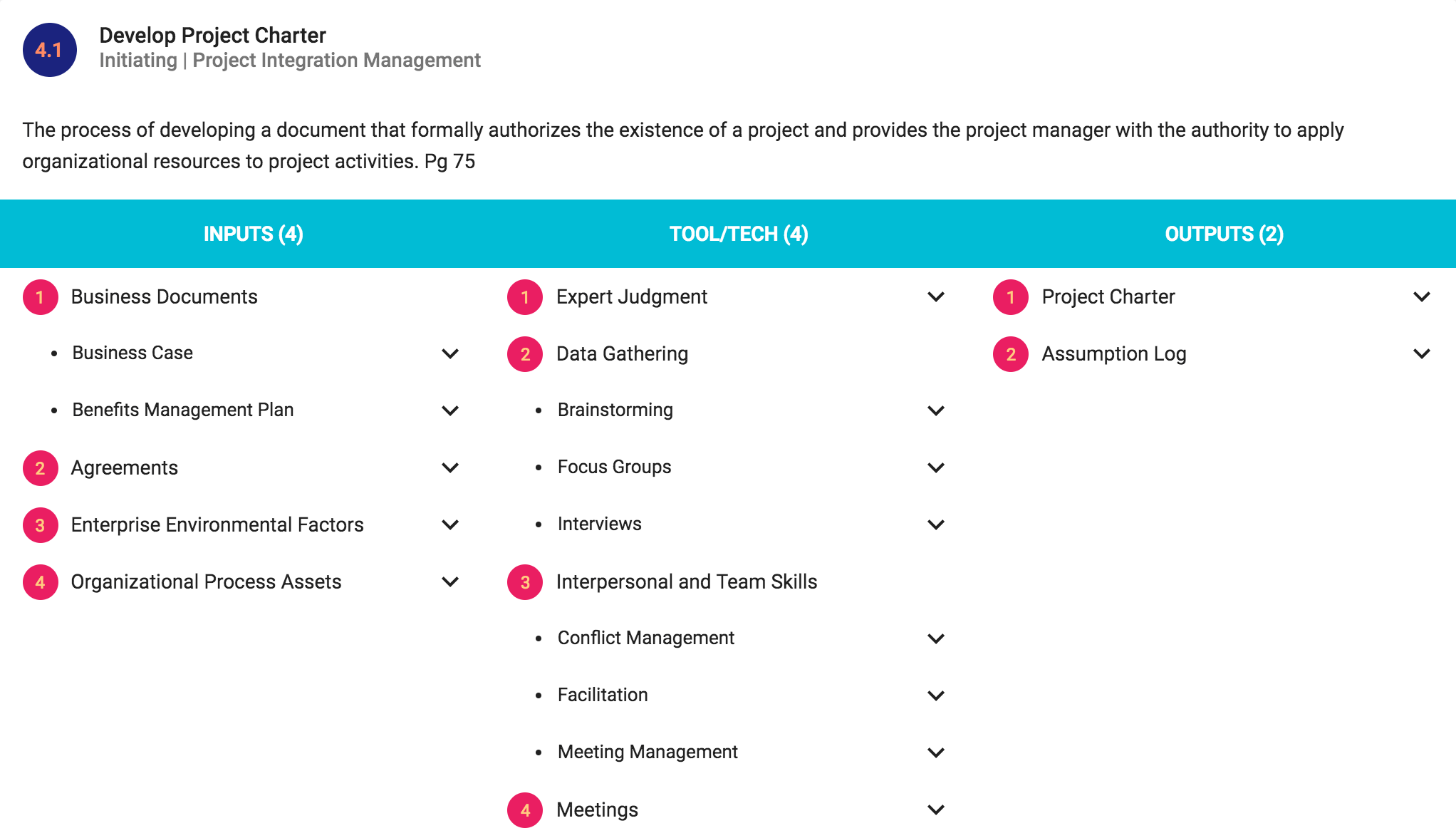Project Management Process Groups and Knowledge Areas

What is the difference between Project Management Process Groups and Knowledge Areas? The answer seemed so obvious, yet when I thought about it, I found it hard to describe in words. So, I went back, did some reading and put my understanding in words.
Process GroupsPermalink
When Project Management processes are grouped logically, they form Process Groups. For example, all the processes required to define a new project or a project phase are grouped into Initiating Process Group. All planning related processes go under Planning Process Group, and so on.
The PMBOK® Guide, 6th Edition defines five Process Groups:
- Initiating Process Group
- Planning Process Group
- Executing Process Group
- Monitoring & Controlling Process Group
- Closing Process Group
The PMBOK Guide requires the use of all five Process Groups in every Project. However, the rigor of implementation of the processes in these Process Groups vary according to the complexity and risk for the specific project. The processes in the Process Groups guide the project manager in application of Project Management knowledge and skills on a project, in order to meet the project objectives.
The Process Groups are linked by the output they produce. For instance, the Initiating Process Group provides the Project Charter as input to the Planning Process Group, which in turn provides the Project Management Plan as input to the Executing Process Group.
Though the Process Groups appear to be discrete and laid out in a specific order, in practice they overlap and interact in several ways. Most processes are iterative and are repeated during the project. Though the Initiating Process Group begins the project and the Closing Process Group ends the project, the Monitoring and Controlling processes overlaps with processes in all other Process Groups and are carried out throughout the project. As an example of iteration, during the Executing Process Group, there may be a need for re-planning and update to the Project Management Plan.
Note that Project Management Process Groups are NOT the same as Project Phases. The PMBOK Guide is very particular about this. For example, in a software project, the Project Phases could be Requirements Analysis, Design, Development, Testing, Release etc. As you can see, these are clearly different from the five Process Groups. When a large project is divided into phases, all five Process Groups would be repeated in each phase.
Knowledge AreasPermalink
When Project Management processes are grouped by areas of specialization, they form Knowledge Areas.
The PMBOK® Guide, 6th Edition defines ten Knowledge Areas:
- Project Integration Management
- Project Scope Management
- Project Schedule Management
- Project Cost Management
- Project Quality Management
- Project Resource Management
- Project Communications Management
- Project Risk Management
- Project Procurement Management
- Project Stakeholder Management
The Knowledge Areas describe what a project manager needs to know, and the Process Groups describe what a project manager needs to do.
Process Group and Knowledge Area Mapping ToolPermalink
All together, the PMBOK® Guide, 6th Edition defines 49 Project Mangement Processes, mapped across five Process Groups and ten Knowledge Areas. Click on the figure below to access the Process Groups and Knowledge Areas Mapping via an online ITTO tool.
Download Process Group and Knowledge Area Mapping TablePermalink
You can download or print the new PMBOK® Guide, 6th Edition based Process Group and Knowledge Area Mapping table by using the buttons on the top right of the embedded PDF file below.
I hope you found this post useful. Comments, suggestions, and feedback are welcome as usual.

12 Comments
Vikas
Harwinder Singh
Alain
Chelluri
Harwinder Singh
Belle
Gale
Sreekanth
Harwinder Singh
Stefan Henry
Aliyah
Perry Joel